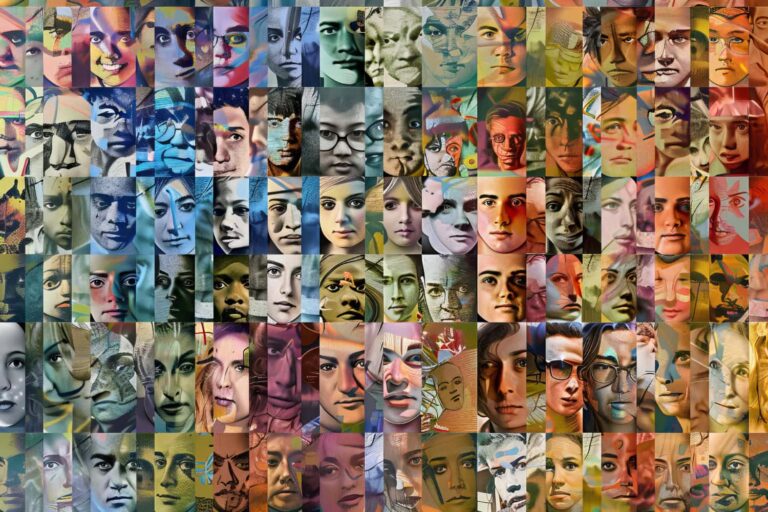My mom, a daycare teacher, recently told me that over the past decade she and her colleagues have been seeing a gradual increase in children who exhibit behavior associated with autism. Many of these children are later diagnosed with the neurodevelopmental disorder.
“It could be that what your mother and her colleagues are seeing are characteristics that the children exhibited in the past; [teachers] just weren’t as aware of them as they are now,” Idan Menashe, director of Israel’s national autism research center, tells ISRAEL21c.

Indeed, an Israeli study published last January revealed that between 2017 and 2021, toddlers up to three years old were four times more likely to be diagnosed with Autism Spectrum Disorder (ASD) than in the past. Children aged four and older were twice as likely to be diagnosed.
According to the Centers for Disease Control and Prevention (CDC), 1 in 36 children in the United States was diagnosed with autism in 2020, compared to 1 in 150 children in 2000.
“The increase in new diagnoses stems from an increase in awareness among parents and educators, and improved diagnostic capabilities,” says Menashe, adding there’s no evidence that more autistic people are being born as time goes on.
“Additionally, today many adults who have never been diagnosed, and no one really suspected they should be, receive the autism diagnosis,” he adds.
What is now classified as ASD used to be split into three different neurodevelopmental conditions: autism, Asperger’s syndrome and Pervasive Developmental Disorder Not Otherwise Specified (PDD-NOS).
On the spectrum
Tesla founder Elon Musk and Facebook founder Mark Zuckerberg both have described themselves as being on the autism spectrum.
So, is autism that big a deal if those diagnosed with it can go on to become wildly successful?
Menashe notes that although autism is primarily characterized by repetitive actions and impaired social functioning, the disorder’s wide range of physical and cognitive symptoms affect everyone differently.
“All of us are neurodivergent in some way; autism actually has many positive characteristics that make a person unique,” he says.
“However, many autistic people have co-occurring disorders, or symptoms that complicate their lives, like sensory hypersensitivity or insomnia.”
Eliminating unwanted traits?
According to Menashe, scientists are studying the possibility of genetically removing ASD’s undesirable traits.
“Today, we can identify some of the genes that cause autism; the research is now focused on learning their molecular mechanisms, better understanding of which could lead to development of new treatments or genetic intervention methods.”
Menashe says the national center is conducting exome sequencing — a type of genetic sequencing that could explain what may be causing symptoms or a disease — on autistic children and their immediate family members.
But what makes the Israeli research center extraordinary internationally is its extensive database, which provides much more information beyond genetics.
“We can cross-reference medical, behavioral and genetic records. That’s something that practically doesn’t exist anywhere else in the world,” he says.
How it all began
Menashe has a doctorate in genetic epidemiology from the Weizmann Institute of Science and is a lecturer at the Department of Public Health and Faculty of Health Sciences in Ben-Gurion University of the Negev (BGU).

He became interested in autism while working at an American medical startup. He returned to Israel and entered academia with the goal of advancing autism research here.

Menashe linked up with Prof. Gal Meiri from the Soroka Medical Center in Beersheva, who at the time was the primary doctor for autism diagnosis in Israel’s south; and Ilan Dinstein, a professor in the psychology and cognitive and brain sciences departments at BGU.
In 2015, the three established a database of children diagnosed with autism and their immediate family members.
This database — the first in Israel, and among the first of its kind in the world — includes behavioral assessments, audio and video recordings, interviews and questionnaires, birth and medical records, MRI scans, genetic evaluations and biological samples.
The center
Their initiative eventually received funding from Israel’s Ministry of Science and Technology, and in 2018 BGU and Soroka opened the national center.
It is now officially called the Azrieli National Center for Autism and Neurodevelopment Research, following a $13 million donation from the Azrieli Foundation in 2021 that enabled the addition of secondary centers across Israel.
“Compared to similar centers [in other countries], ours is truly unique; we begin collecting data from before the child is even diagnosed, and monitor their behavioral development to see which treatments work and which don’t,” Menashe explains.
The center’s study two years ago revealed that children diagnosed before 2.5 years of age were three times more likely to exhibit considerable improvements in the core social symptoms of autism in comparison to children diagnosed at later ages.
“In Israel, the average age of ASD diagnosis is three years old, thanks to the government system of development monitoring [of babies] at family health clinics. For comparison, in the US the average diagnosis age is six to seven years old,” Menashe notes.
The center also offers various workshops and seminars to help autistic individuals integrate into society. Its next research conference for families and communities is scheduled for October 30.
For more information about the work of the center, click here.
This article was originally published by a www.israel21c.org . Read the Original article here. .



